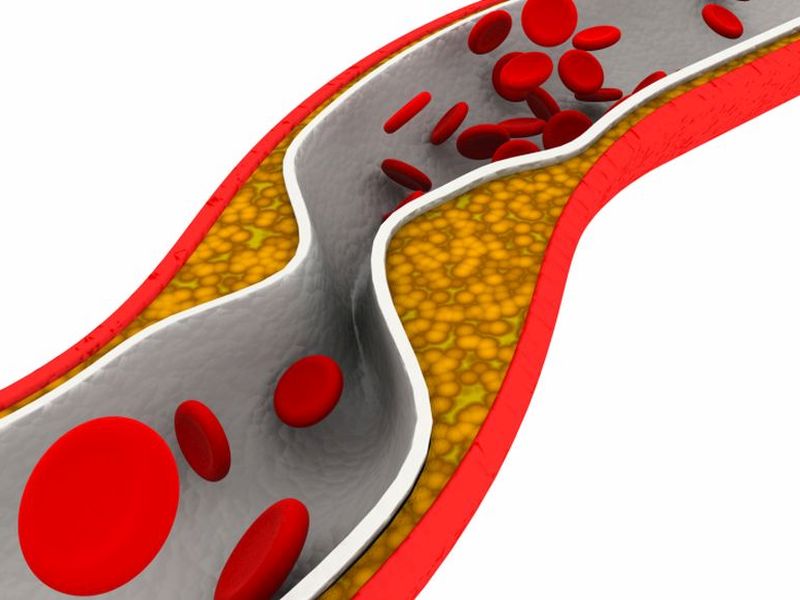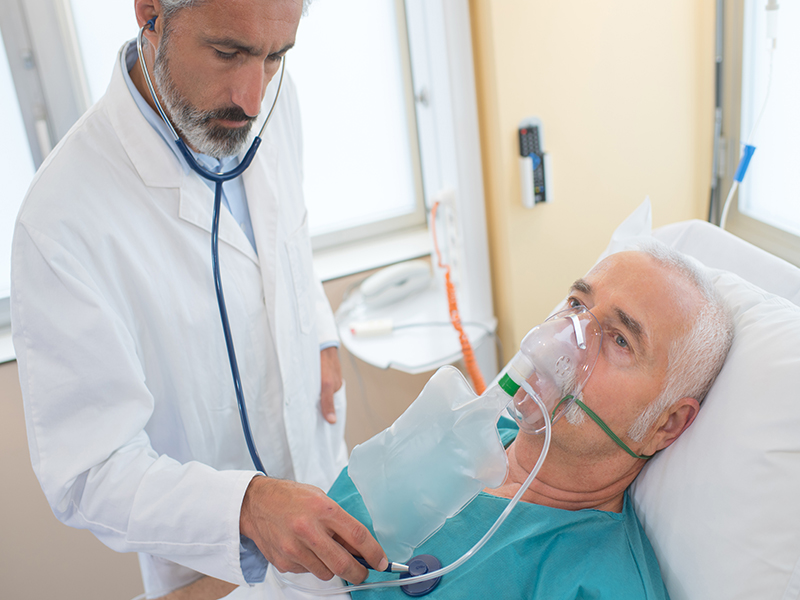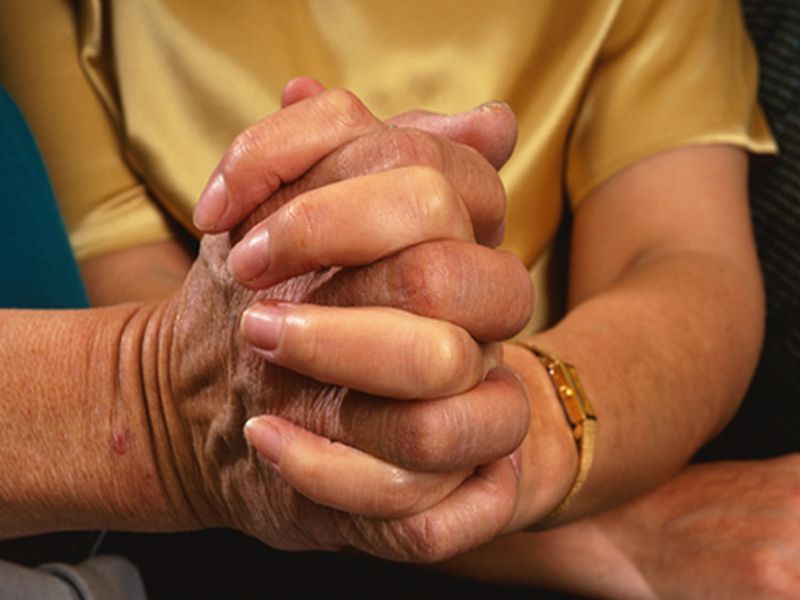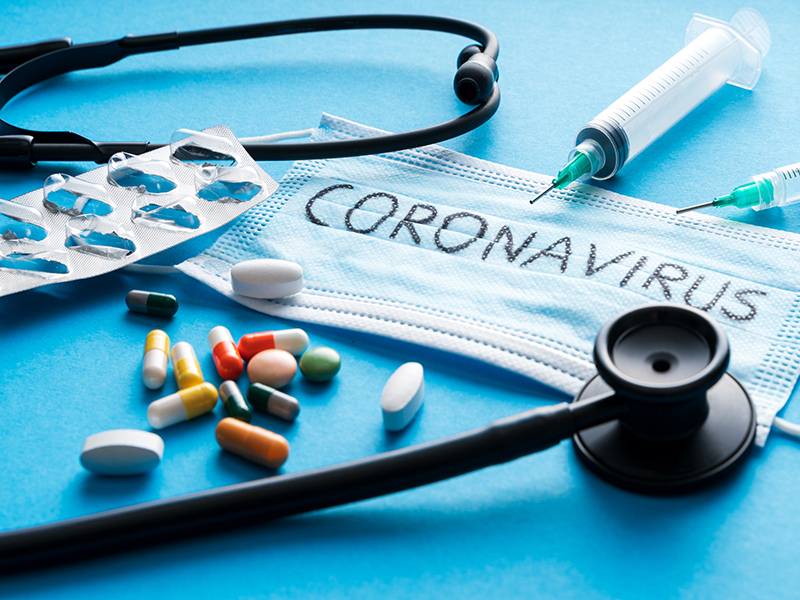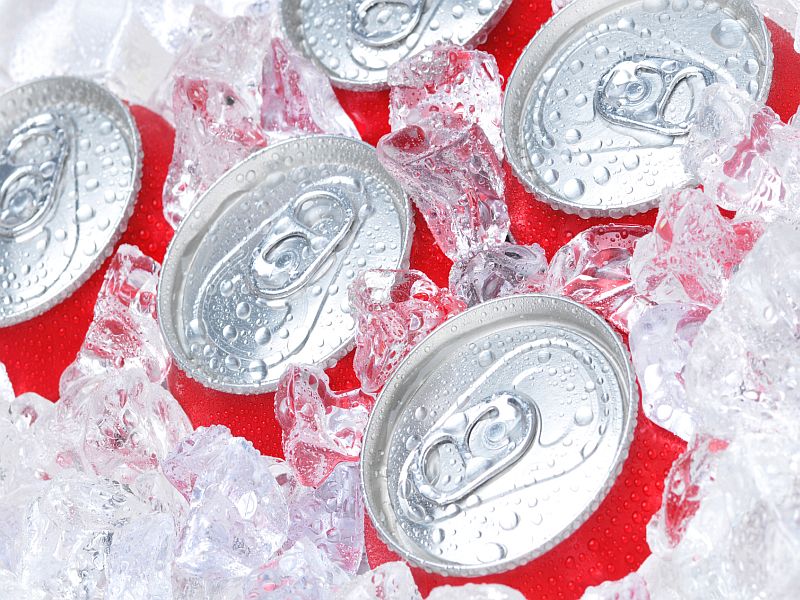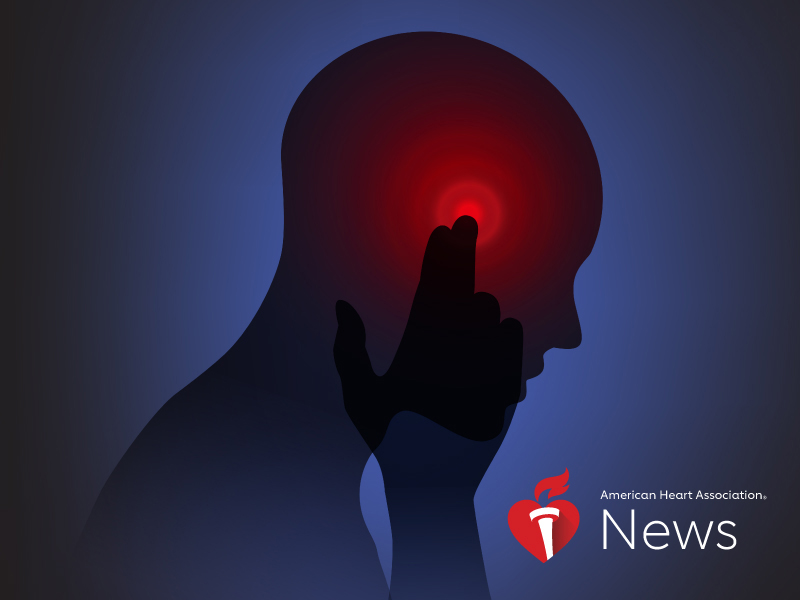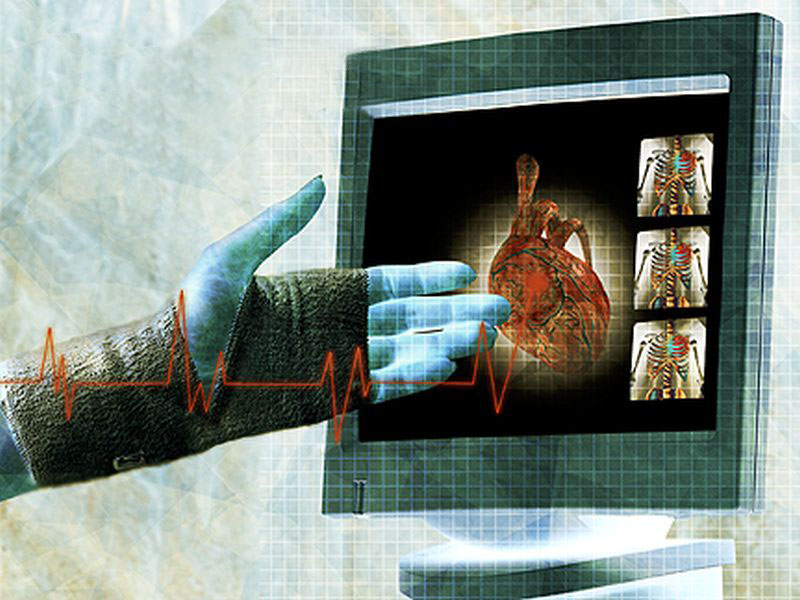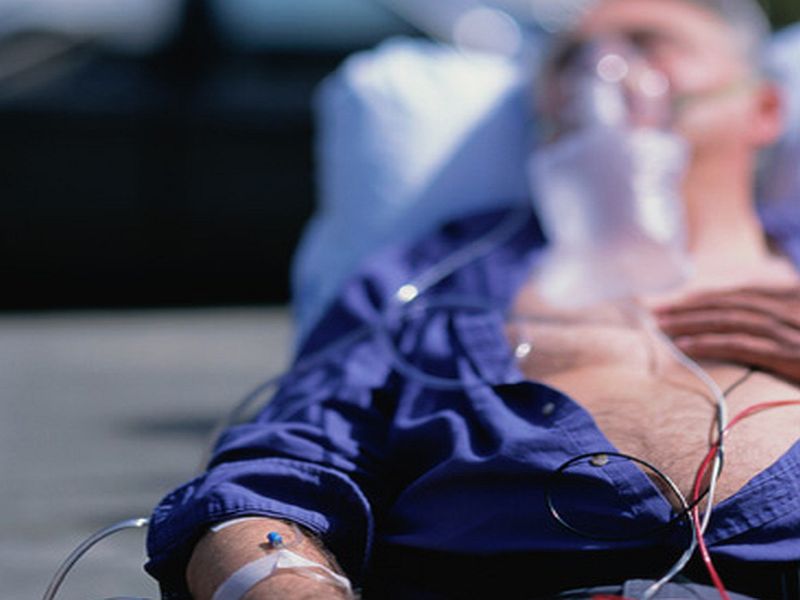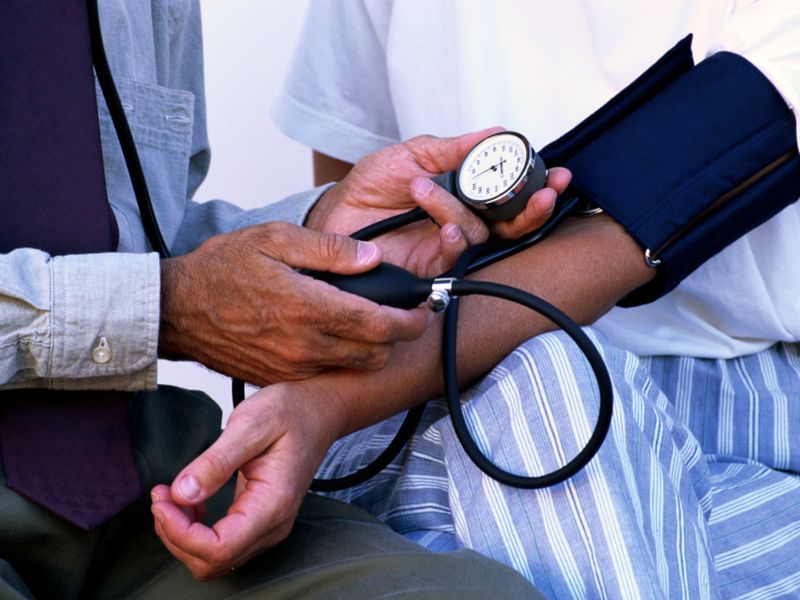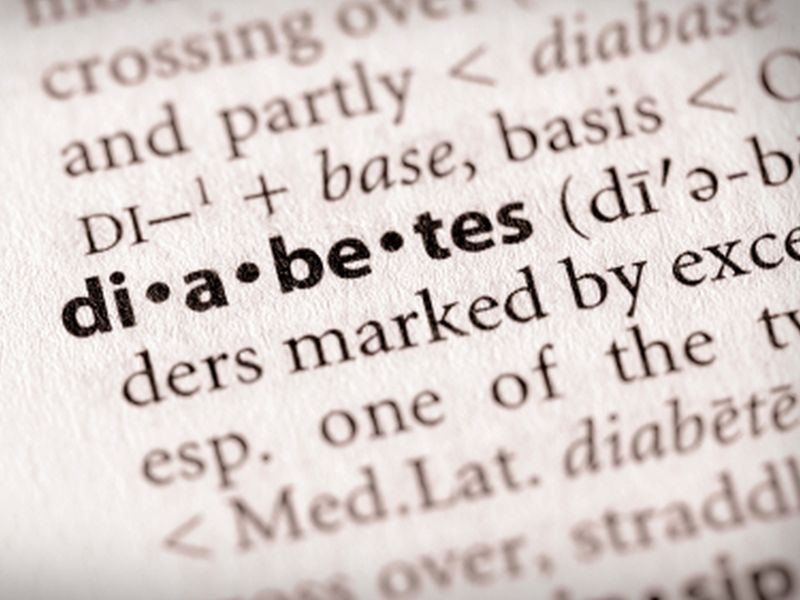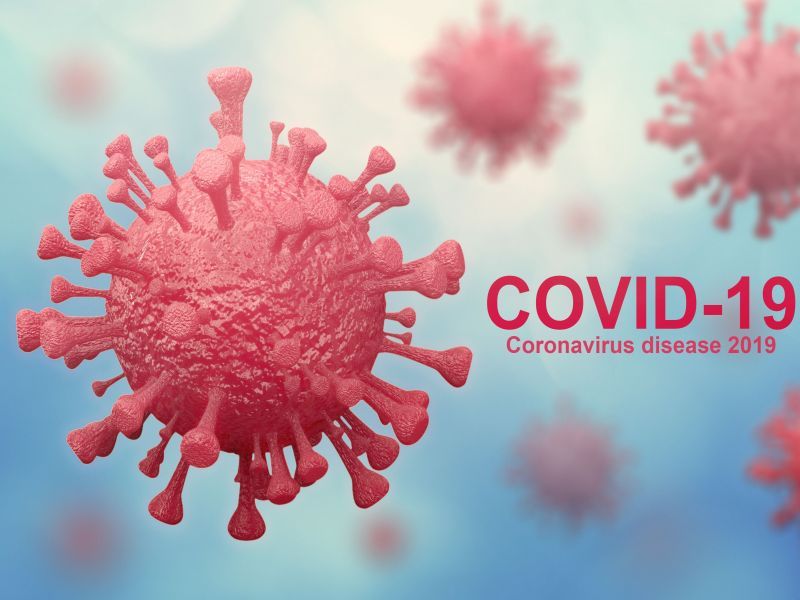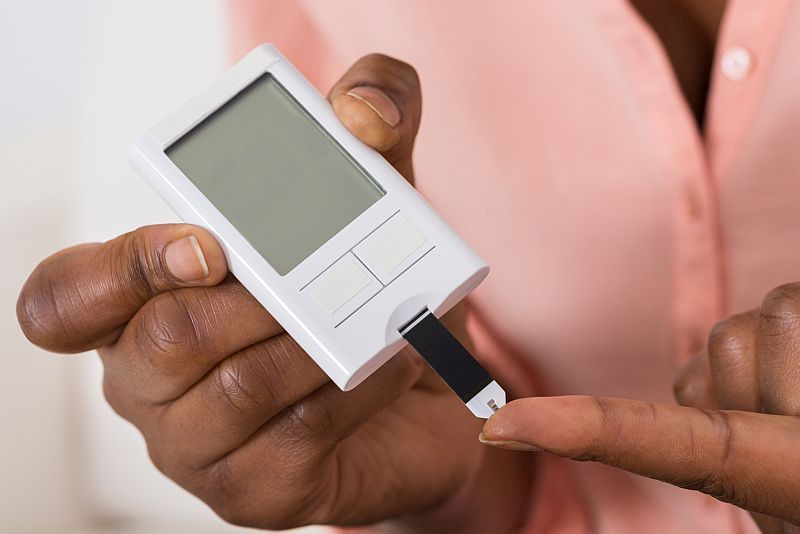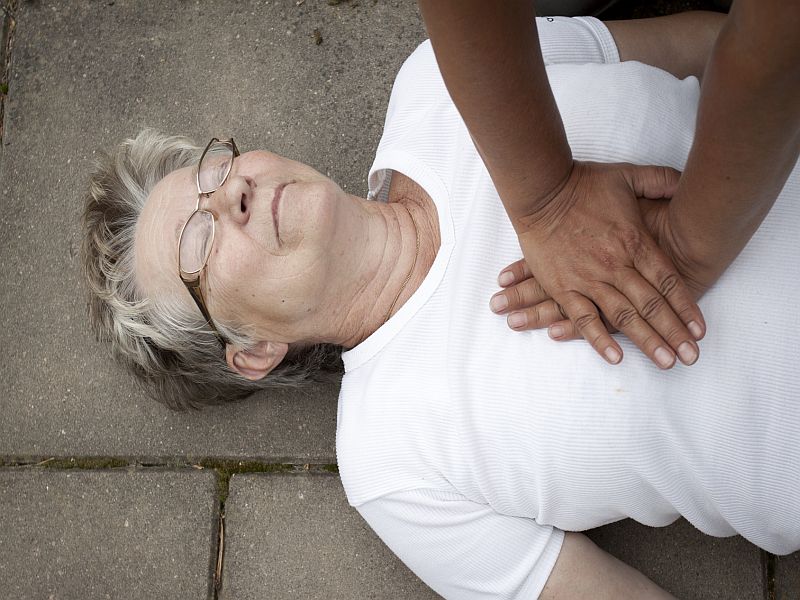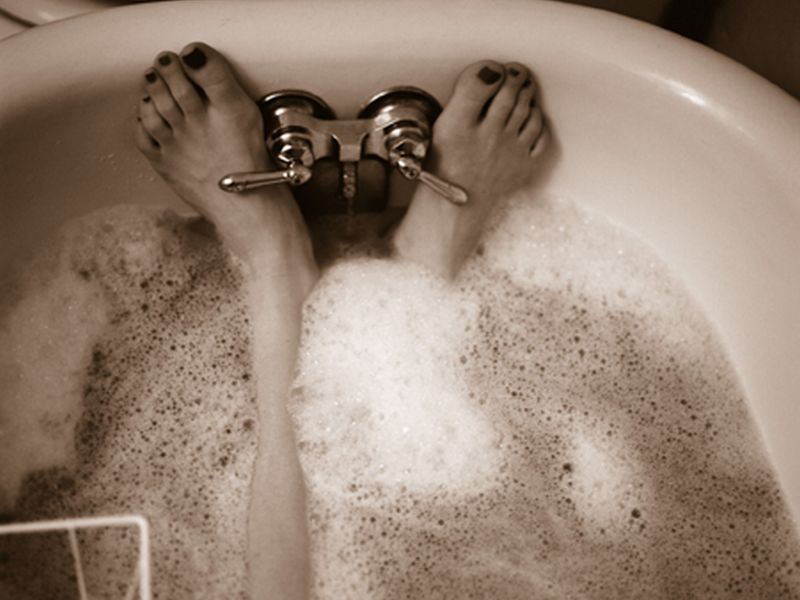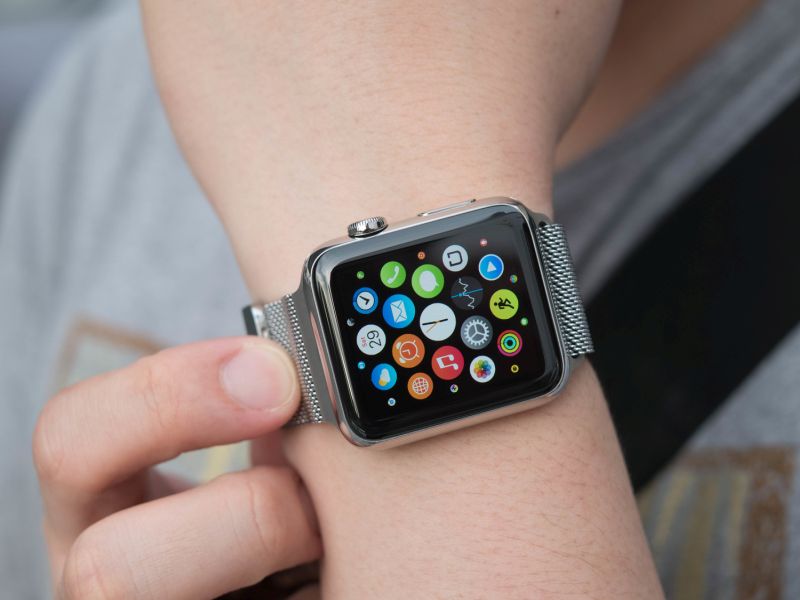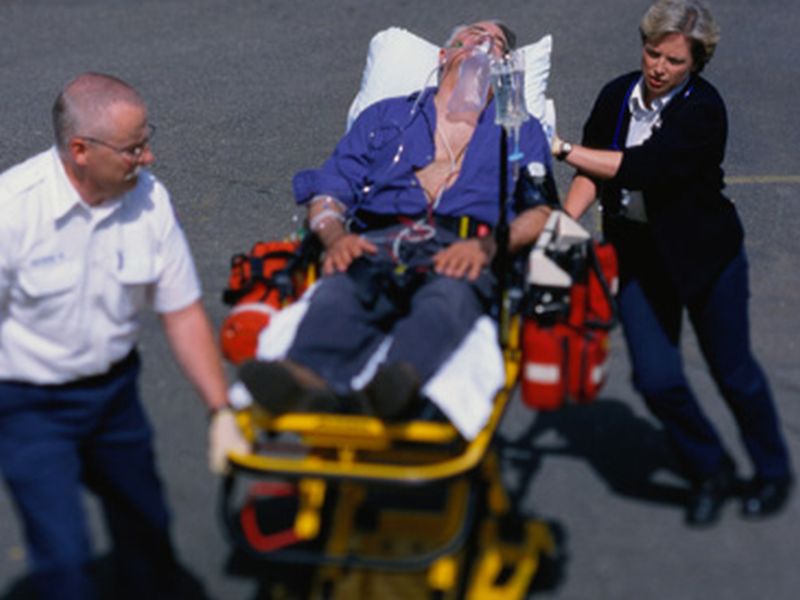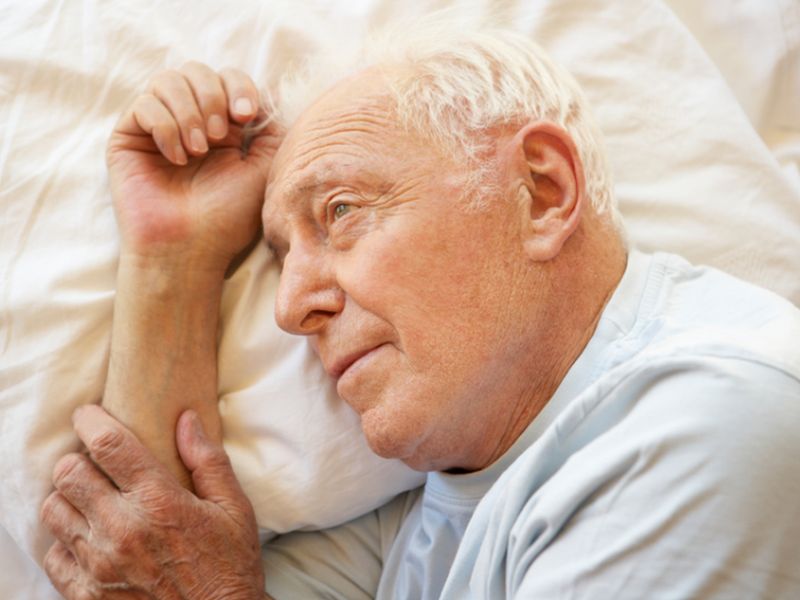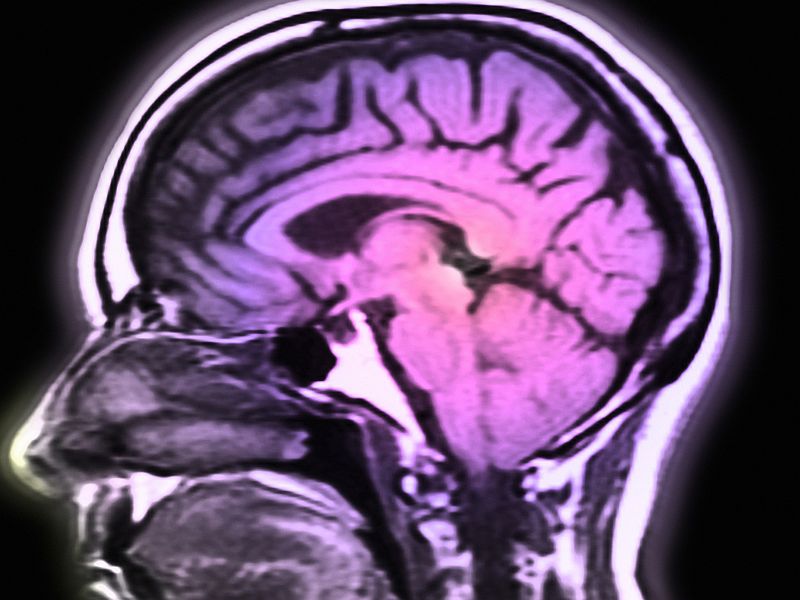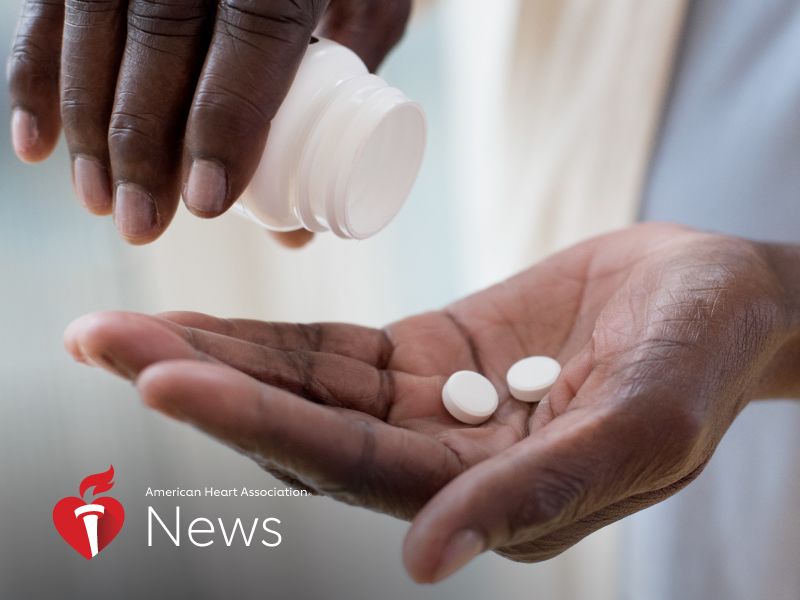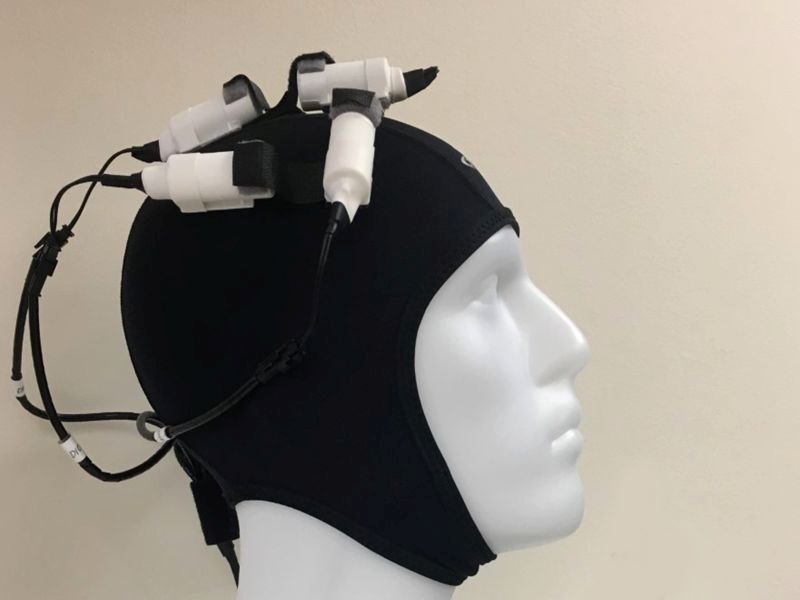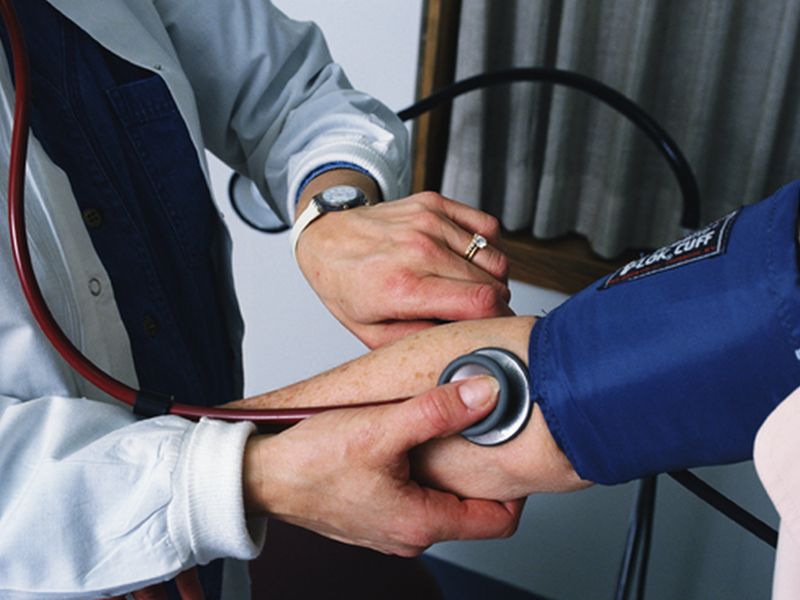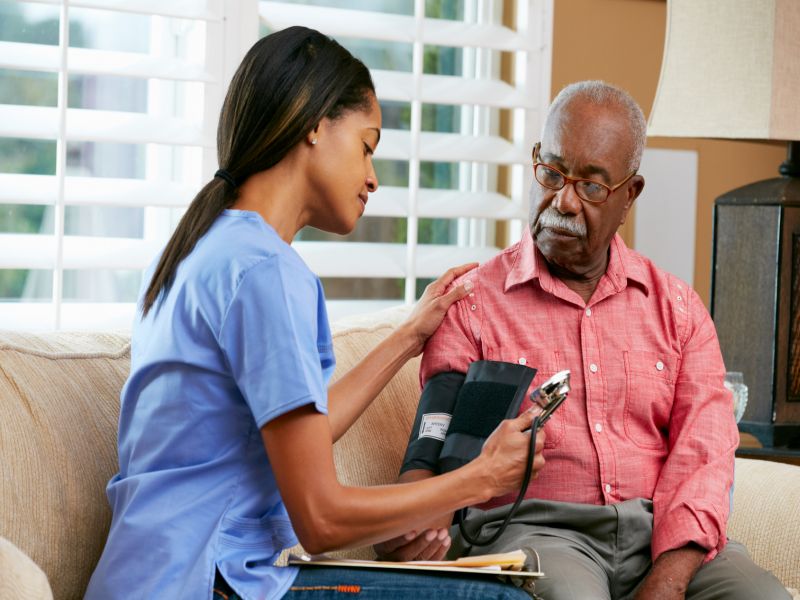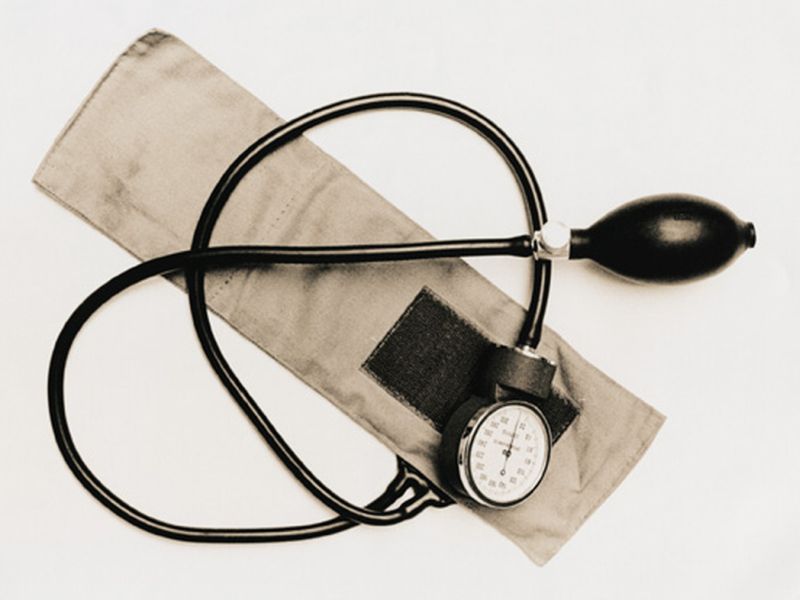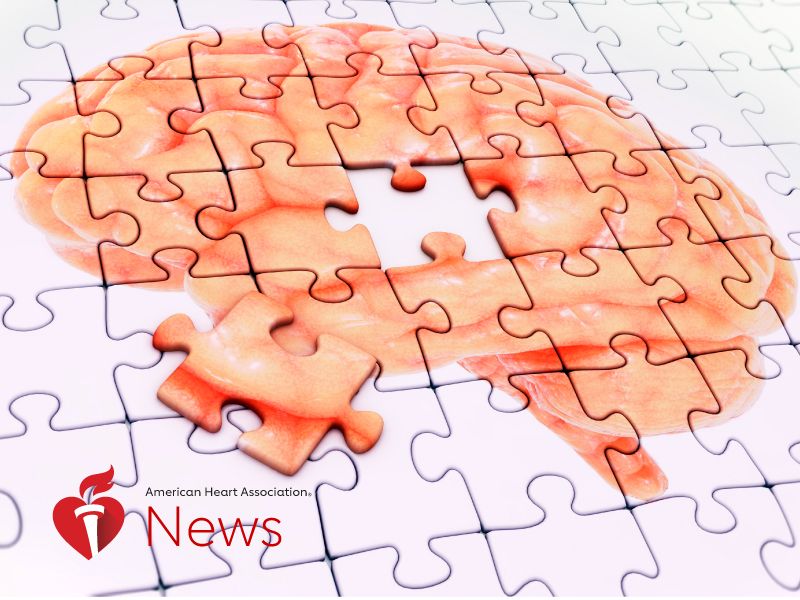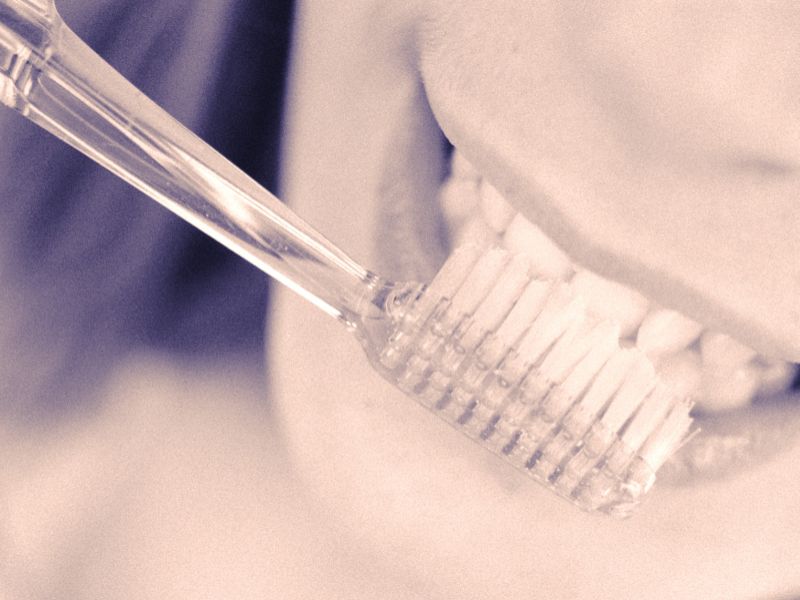Get Healthy!
511 Results for search "Heart / Stroke-Related: Stroke".
Health News Results - 511
While a fever and cough have seemed to be the early warning signs of COVID-19, new research shows almost half of hospitalized patients experience a host of neurological problems.
In fact, headaches, dizziness, strokes, weakness, decreased alertness or other neurological symptoms can appear before the more commonly known symptoms of infection with the new coronavirus (known as S...
- Steven Reinberg
- |
- June 15, 2020
- |
- Full Page
Women who have a stroke are far more likely to be treated with clot-busting drugs than they used to be, new research shows.
In the early 2000s, women suffering a stroke were 30% less likely than men to get clot-busting treatment, also known as thrombolysis. Recently, the gap has narrowed to 13%.
The researchers reached that conclusion by pooling data from 24 studies...
- Steven Reinberg
- |
- June 10, 2020
- |
- Full Page
Smoking carries a host of health risks, and now a new study shows the habit significantly increases black Americans' risk of stroke.
The research included more than 5,300 participants, aged 21 to 84, from the tri-county area around Jackson, Miss. In the final analysis, 546 were current smokers, 781 were past smokers, and 3,083 never smoked.
The participants were part of the ...
- Robert Preidt
- |
- June 10, 2020
- |
- Full Page
Tai chi might be just what doctors should order for their heart patients, new research suggests.
Many of these folks experience anxiety, stress and depression. For example, depression affects about 20% of people with heart disease or heart failure, 27% of those with high blood pressure, and 35% of stroke survivors.
Tai chi is a mind-body exercise that combines se...
- Robert Preidt
- |
- June 9, 2020
- |
- Full Page
Whether pot use increases the risk of stroke has been hotly debated, and now a new study adds to evidence that it doesn't.
"Our observational study looked specifically at recent cannabis use by reviewing drug testing data for people admitted to the hospital. While more research is needed with larger numbers of people, our study lends support to the studies showing that cannabis use do...
- Steven Reinberg
- |
- June 4, 2020
- |
- Full Page
Visits to U.S. emergency departments are down by 42% compared to the same time last year, and that's not good news, researchers report.
Fears of contracting the new coronavirus while visiting the ER are keeping people away, experts say.
But hesitating to seek help can be a fatal mistake.
So, "wider access is needed to health messages that reinforce the importa...
- E.J. Mundell
- |
- June 3, 2020
- |
- Full Page
In a small French study, three-quarters of all COVID-19 patients admitted to intensive care went on to experience a dangerous blood clot in the leg that can travel to the lungs and potentially cause death.
Known as a DVT, the condition first gained notoriety as so-called "economy class syndrome," when passengers on long-haul flights developed them after sitting still for too long. Bu...
- E.J. Mundell
- |
- May 29, 2020
- |
- Full Page
Could a higher power help stroke recovery? People who are spiritual may be better able to deal with stroke-related disability, new research suggests.
The Italian study linked spirituality -- be it through religion or simply a strong sense of purpose and connection to others -- to a lower risk of depression for people with low to moderate disability after a stroke and their caregivers...
- Serena Gordon
- |
- May 28, 2020
- |
- Full Page
Multiple sclerosis can cause weakness, pain, fatigue and vision problems. The disease also appears to increase the odds of heart disease and stroke, new research suggests.
Multiple sclerosis (MS) is a central nervous system disorder that can affect movement. The British study found that people with MS were nearly one-third more likely to have "macrovascular disease." Those are condit...
- Serena Gordon
- |
- May 20, 2020
- |
- Full Page
Believing that you won't have a second stroke may help you control your blood pressure, a new study suggests.
A positive attitude about your health can go a long way in maintaining cardiovascular health, especially for women, researchers say.
"Targeted strategies to improve health beliefs after stroke may be an important component to include in risk-factor management among...
- Steven Reinberg
- |
- May 18, 2020
- |
- Full Page
Low-income Americans are much less likely to be screened for heart disease or to receive counseling about controlling risk factors, a new study finds.
Heart health screenings -- such as regular blood pressure and cholesterol checks -- and counseling to improve diet, increase exercise or quit smoking play important roles in reducing heart disease risk.
Income has long been as...
- Robert Preidt
- |
- May 15, 2020
- |
- Full Page
Memory and thinking skills are generally worse after a stroke for people with type 2 diabetes compared to people with normal blood sugar levels or prediabetes, new research suggests.
"We found that diabetes, but not prediabetes, is associated with poorer cognitive performance in every aspect of cognition tested," said study lead author Jessica Lo. She's a research associate from the ...
- Serena Gordon
- |
- May 14, 2020
- |
- Full Page
During the current coronavirus pandemic, U.S. hospitals are seeing fewer people for signs of stroke, a new study finds.
Evaluations for stroke have dropped nearly 40%, said researchers who looked at data from more than 850 hospitals across the country.
"Our stroke team has maintained full capacity to provide emergency stroke treatment at all times, even during the heig...
- Steven Reinberg
- |
- May 14, 2020
- |
- Full Page
Women who drink a lot of sodas, sweetened juices and other sugary drinks are at greater risk of developing heart disease, a new study finds.
Those who drink one or more a day have nearly a 20% higher risk than women who never do. And it's not just soda that's problematic: Fruit drinks with added sugars are also a culprit, researchers say.
Though the study does not pro...
- Steven Reinberg
- |
- May 13, 2020
- |
- Full Page
The first thing to know about the possible links between COVID-19 and stroke is simple, say doctors: We just don't know.
"We have very serious worries that there's a connection," said Dr. Patrick D. Lyden, professor of neurology at Cedars-Sinai Medical Center in Los Angeles. "But I want to make it crystal clear that if we stay focused on evidence and data - which we really need to do mo...
- |
- May 12, 2020
- |
- Full Page
Adults who had rough childhoods have higher odds for heart disease.
That's the conclusion from a look at more than 3,600 people who were followed from the mid-1980s through 2018. Researchers found that those who experienced the most trauma, abuse, neglect and family dysfunction in childhood were 50% more likely to have had a heart attack, stroke or other heart problem in their 50...
- Robert Preidt
- |
- May 6, 2020
- |
- Full Page
As more evidence emerges that COVID-19 is tied to an increased risk of dangerous blood clots, new research suggests that giving patients blood thinners may improve their odds of survival.
"Using anticoagulants should be considered when patients get admitted to the ER and have tested positive for COVID-19, to possibly improve outcomes," study senior author Dr. Valentin Fuster, physicia...
- E.J. Mundell
- |
- May 6, 2020
- |
- Full Page
Lots of boozing might increase your risk for a stroke, Swedish researchers report.
Heavy alcohol use can triple your risk for peripheral artery disease, a narrowing of arteries that results in reduced blood flow, usually to the legs. It can also increase your risk for stroke by 27%. There's also evidence of a link to coronary artery disease, atrial fibrillation and aortic aneurys...
- Steven Reinberg
- |
- May 5, 2020
- |
- Full Page
With increasing evidence showing a link between COVID-19 and stroke, it's more important than ever to call 911 if someone shows signs they are having one, experts say.
"Despite a growing connection between COVID-19 and an increased risk of stroke, hospitals across the country continue to experience a decrease in stroke cases," said Dr. Richard Klucznik, a stroke surgeon and president ...
- Robert Preidt
- |
- May 5, 2020
- |
- Full Page
Twice as many women who have high blood pressure during pregnancy may be at an increased risk for heart and kidney disease than once thought, a new study suggests.
For the study, researchers collected data on more than 9,800 pregnancies among more than 7,500 women in Olmsted County, Minn., who gave birth between 1976 and 1982.
During that time, 659 women had 719 high blood...
- Steven Reinberg
- |
- May 4, 2020
- |
- Full Page
An Australian study has good news for people with type 2 diabetes -- fewer people with diabetes are having heart attacks and strokes compared to 20 years ago.
Heart attacks, strokes and other cardiovascular complications have declined in the general population, too. But the decreases among people with diabetes have outpaced those for the general population, the researchers said.
...- Serena Gordon
- |
- May 1, 2020
- |
- Full Page
Fewer heart attack and stroke patients are seeking medical care since the coronavirus pandemic began and doctors are wondering why.
It's possible that during the pandemic, patients are ignoring symptoms that would otherwise worry them, doctors from Cedars-Sinai in Los Angeles suggest.
While investigators are trying to figure out what's happening, Dr. Patrick Lyden, a profe...
- Steve Reinberg
- |
- April 30, 2020
- |
- Full Page
COVID-19 might raise stroke risk in young and middle-aged adults, with virus-linked blood clots causing severe damage to their brains, doctors warn.
Word has already spread that the novel coronavirus appears to increase clotting in some patients, experts say.
Now, a series of five cases at the Mount Sinai Health System in New York City indicate that those clots might cause s...
- Dennis Thompson
- |
- April 29, 2020
- |
- Full Page
As the toll of the COVID-19 pandemic grows, it is increasingly clear the infection is more than a lung disease. Many patients are developing heart complications, though the reasons are not fully understood.
People with heart disease or a history of stroke are at increased risk of the coronavirus infection, and of suffering more severe symptoms, according to the American Heart Associat...
- Amy Norton
- |
- April 15, 2020
- |
- Full Page
Even light exercise can counter the damage of stroke in survivors, a new study suggests.
"Stroke is a major cause of disability in older adults," said research leader Neha Gothe, a professor of kinesiology and community health at the University of Illinois at Urbana-Champaign.
"We know that physical activity can improve how well people survive a stroke and recover after the ...
- Robert Preidt
- |
- April 13, 2020
- |
- Full Page
A study out of China finds that strokes, altered consciousness and other neurological issues are relatively common in more serious cases of COVID-19.
Looking at 214 cases of severe coronavirus illness treated in Wuhan city during the early phase of the global pandemic, doctors reported that 36.4% of patients displayed neurological symptoms.
Sometimes these symptoms appe...
- E.J. Mundell
- |
- April 10, 2020
- |
- Full Page
If you're a middle-aged woman, it's not too late to make lifestyle changes that could significantly reduce your risk of stroke, researchers say.
"We found that changing to a healthy lifestyle, even in your 50s, still has the potential to prevent strokes," said lead author Goodarz Danaei, an associate professor of cardiovascular health at Harvard T.H. Chan School of Public Health.
...- Robert Preidt
- |
- April 9, 2020
- |
- Full Page
Good blood sugar control can help protect against mental decline after a common type of stroke in people with diabetes, new research suggests.
The study included 942 patients with diabetes who suffered a lacunar stroke -- one caused by a blockage in an artery that provides blood to the brain's deep structures.
Better blood sugar (glucose) control was associated with better m...
- Robert Preidt
- |
- March 30, 2020
- |
- Full Page
With the new coronavirus severely straining the U.S. health care system, experts are calling on heart attack and stroke survivors to take extra steps to reduce their risk of a repeat event.
The American Heart Association (AHA) said current information suggests that elderly people with heart disease or high blood pressure are more likely to be infected with the coronavirus and to devel...
- Robert Preidt
- |
- March 27, 2020
- |
- Full Page
One of the few pleasures left to Americans sequestered at home is a soak in a hot bath.
Now, research from Japan involving more than 30,000 adults suggests a daily bath might do more than cleanse and relax -- it might also help lower your odds for heart disease and stroke.
"We found that frequent tub bathing was significantly associated with a lower risk of hypertension, sug...
- Robert Preidt
- |
- March 25, 2020
- |
- Full Page
Weight-loss surgery is associated with a significantly lower risk of heart attack, stroke, heart failure and death, a new study reveals.
The study included more than 7,400 severely obese people, average age 36, in Denmark who had not suffered a heart attack or stroke. Half of the participants had weight-loss ("bariatric") surgery and half did not (the "control" group).
Over ...
- Robert Preidt
- |
- March 23, 2020
- |
- Full Page
Eating tofu and other foods with high levels of isoflavones -- plant-based "phytoestrogens" -- could lower people's risk of heart disease, a new study suggests. The effect was especially strong in women.
"Other human trials and animal studies of isoflavones, tofu and cardiovascular risk markers have also indicated positive effects, so people with an elevated risk of developing heart d...
- Robert Preidt
- |
- March 23, 2020
- |
- Full Page
From weight loss to physical activity, lifestyle changes are effective, yet underused strategies to manage atrial fibrillation, according to a new scientific statement from the American Heart Association (AHA).
Atrial fibrillation -- also known as a-fib or AF -- is an abnormal heart rhythm affecting more than 2.7 million Americans.
In a-fib, the heart's upper chambers beat ...
- Kayla McKiski
- |
- March 11, 2020
- |
- Full Page
Too few Americans have quick access to a medical center that can perform a procedure to remove stroke-causing blood clots, new research shows.
For the study, researchers examined nationwide availability of endovascular thrombectomy -- removal of a blood clot with a mechanical device that's threaded through an artery.
It improves patients' outcomes if it's performed within 24...
- Robert Preidt
- |
- March 6, 2020
- |
- Full Page
If you love to drizzle a bit of olive oil on your salad, a new study suggests a side benefit to that tasty fat: a lower risk of heart disease.
The research, funded by the National Institutes of Health, found that people who had more than half a tablespoon of olive oil daily had a 21% lower risk of heart disease.
And, if you replace a teaspoon of butter, margarine or ma...
- Serena Gordon
- |
- March 5, 2020
- |
- Full Page
People with irregular sleep patterns may be at increased risk for heart attack and stroke, a new study suggests.
Researchers analyzed data from nearly 2,000 Americans between 45 and 84 years of age who did not have heart disease. Participants wore a wrist device that monitored their sleep for seven days, including bedtime, sleep duration and wake time.
They were then followe...
- Robert Preidt
- |
- March 4, 2020
- |
- Full Page
Want to avoid a stroke? Reach for fruits and veggies, new research suggests.
The new European study of more than 418,000 people found that what you eat can influence your risk for different types of stroke.
"The most important finding is that higher consumption of both dietary fiber and fruit and vegetables was strongly associated with lower risks of ischemic stroke," said ...
- Robert Preidt
- |
- February 24, 2020
- |
- Full Page
Canadian doctors who conducted the first robotic surgery to treat a brain aneurysm say the approach could boost the availability and precision of lifesaving stroke care.
Use of the technology could also be a first step toward remote robotic surgery for stroke and other conditions affecting brain blood vessels.
"In the future, perhaps, a patient could end up in a small center...
- E.J. Mundell
- |
- February 21, 2020
- |
- Full Page
Nearly two-thirds of people who survive an often-deadly type of stroke caused by bleeding in the brain continue to experience high blood pressure because they aren't taking enough medication, new research shows.
The preliminary study, presented this week at the American Stroke Association's International Stroke Conference in Los Angeles, found most people who survive an intracerebral...
- |
- February 21, 2020
- |
- Full Page
Ambulances outfitted as "mobile stroke treatment units" provide faster treatment and reduce patients' risk of severe disability and death, German researchers report.
The new study examined the use of three mobile stroke units in Berlin. Each unit is staffed with emergency medicine neurologists and has a CT scanner and lab on board that enables treatment at the scene.
Treatme...
- Robert Preidt
- |
- February 21, 2020
- |
- Full Page
A noninvasive magnetic brain stimulation device worn less than an hour a day can increase activity near stroke-injured areas of the brain, a small, preliminary study suggests.
Those improvements in brain activity might then lead to increased motor function in people who have had a stroke, the researchers said.
"We were excited to see a strong hint of improved motor functio...
- Serena Gordon
- |
- February 20, 2020
- |
- Full Page
For decades, artery-opening stents have helped prevent heart attacks, and new research suggests they might also help prevent strokes in the brain.
In a new study, the self-expanding, intracranial Wingspan brain stent seems effective over the long term in reducing stroke patients' risk of a subsequent stroke and death.
Intracranial stents are tiny mesh tubes that are permanen...
- Robert Preidt
- |
- February 20, 2020
- |
- Full Page
Millions of Americans with high blood pressure are at risk of heart attack and stroke, but just a few changes might cut that risk.
"In February, American Heart Month, we encourage all Americans to take control of their heart health by better understanding and monitoring their blood pressure levels and making healthy lifestyle changes that can significantly reduce their risk of serious...
- Kayla McKiski
- |
- February 20, 2020
- |
- Full Page
Blacks and Hispanics of Caribbean descent may have a much higher risk of stroke than whites, new research suggests.
"Previous research has suggested that racial and ethnic disparities in stroke risk are greater at younger ages and dissipate as people get older, so we were surprised to find that the differences remained strong in women over 70 years old," said study author Hannah Garde...
- Robert Preidt
- |
- February 19, 2020
- |
- Full Page
Patients taking a common diuretic to help lower blood pressure may be better off with a similarly effective but safer one, a new study suggests.
Current guidelines recommend the drug chlorthalidone (Thalitone) as the first-line diuretic. But it can have serious side effects that can be avoided with another diuretic, hydrochlorothiazide (Hydrodiuril), researchers say.
"Diur...
- Steven Reinberg
- |
- February 18, 2020
- |
- Full Page
Traditional stroke risk factors, such as high blood pressure, smoking and diabetes, impact people of various races and genders differently, new research shows.
"The biggest thing we found was that hypertension has a bigger effect on stroke among African American men than it does on (white people) or African American women, even in young adulthood," said lead investigator Elizabeth Ar...
- |
- February 18, 2020
- |
- Full Page
Bleeding strokes are the deadliest type of stroke and the hardest to treat. What might make matters worse is having both diabetes and Alzheimer's disease versus either condition alone, new research shows.
The study looked at 2,071 adults in the Kentucky Appalachian Stroke Registry who had a hemorrhagic stroke. The researchers reviewed each patient's health records to look for a previ...
- |
- February 17, 2020
- |
- Full Page
Young black Americans face higher rates of stroke than others as a result of high blood pressure, diabetes and obesity, new research suggests.
But the same study finds they typically underestimate their stroke risk.
"If people think they're not at risk of a stroke, they are less likely to change their behavior to reduce the risk because they don't believe anything is wrong,"...
- Kayla McKiski
- |
- February 13, 2020
- |
- Full Page
Gum disease may be linked to higher rates of stroke caused by hardened and severely blocked arteries, preliminary research findings indicate.
Two unpublished studies suggest that treating gum disease alongside other stroke risk factors might help prevent stroke by reducing the buildup of plaque in arteries and narrowing of blood vessels in the brain. However, the studies do not prove...
- Kayla McKiski
- |
- February 13, 2020
- |
- Full Page
Optimism might be powerful medicine when recovering from a stroke, a new study suggests.
Stroke survivors who had positive outlooks showed lower levels of inflammation, reduced stroke severity and fewer physical impairments after three months compared to more pessimistic stroke survivors, the researchers found.
"Our results suggest that optimistic people have a better diseas...
- Kayla McKiski
- |
- February 13, 2020
- |
- Full Page


